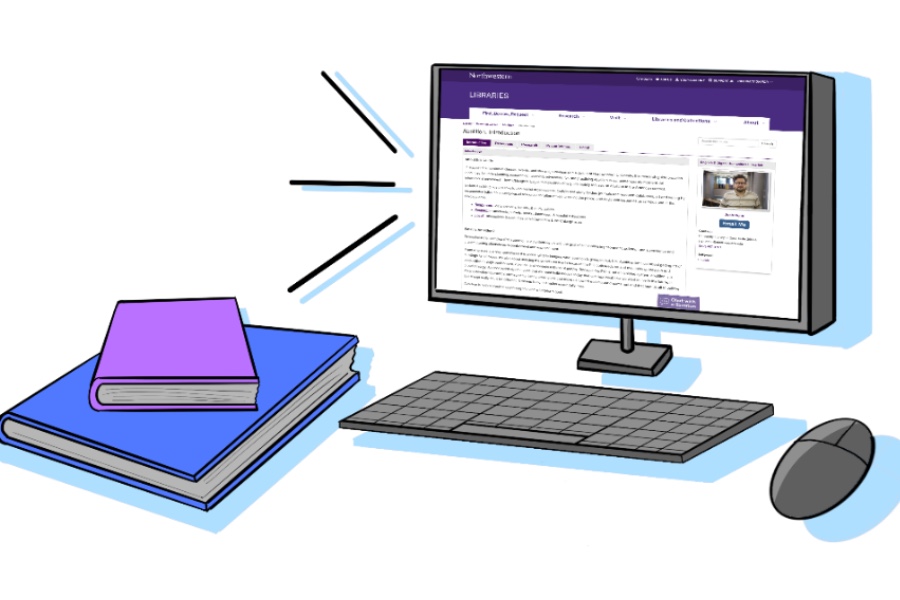Q&A: Northwestern librarian creates abolition research guide
The abolition research guide is one of many that Honn has created. He recently finished one on prison education.
January 23, 2022
Northwestern English and Digital Humanities Librarian Josh Honn compiled a research guide on the abolition of the prison industrial complex, inspired by the NU Community Not Cops protests in 2020 as well as his own interest. Honn spoke with The Daily about how he hopes the community will use the guide to learn more about abolition, particularly in the US.
This interview has been edited and condensed for clarity.
The Daily: What prompted you to create this research guide?
Honn: I was seeing a lot of misinformation and disinformation about (abolition). Despite a complete lack of funding in the area, there’s actually a significant amount of literature and work and experimentation that’s been done. So I really wanted to bring together those resources for folks. Not only people who were learning about it for the first time, but also for activists and folks who want to put things in practice.
The Daily: What involvement have you had with the abolition movement?
Honn: I’m part of a group called the Abolitionist Library Association, which is a group of folks who are thinking about issues of abolition in library spaces. Anything from the surveillance that we’re doing of our patrons, whether it’s in special collections or tracking data, to reorienting the kinds of ideas about security in library spaces towards more care and transformative justice approaches, to stopping the practice of purchasing furniture that’s made by prison labor.
The Daily: The guide is grouped into five categories: introduction, resources, research, prison writing and local. What kind of information falls under each of these?
Honn: I wanted to make it as simple as possible. The introduction was kind of that entry point for folks. The resources are for people who want to get involved. The research section was really for the increasing number of scholars and students on campus who are thinking about these issues and really want to understand the academic literature and also create their own. And then I wanted to make sure that we were also centering the voices of the incarcerated, so there’s a section on prison writing. And then with all the guides I create, I always have a local section: a way for people to get involved on campus or beyond.
The Daily: What do you recommend as a good starting point for those with little background on abolition?
Honn: I put a few pieces at the beginning of the guide for that purpose. There’s a really great piece by Brea Baker called “Why I Became an Abolitionist,” and I think those kinds of first person narratives are really important to help folks see themselves in this work or in this future landscape.
The Daily: What does abolition look like from your perspective?
Honn: For me, abolition is a world in which there is no policing or imprisonment. It’s a world in which community and care is centered, so we are empowered and supported to make decisions to come together to seek new forms of justice. We’ve been living in a world where we center on carcerality and punishment for so long. And for me, it’s not just the absence of those things, but it’s building these new and better worlds.
Email: [email protected]
Twitter: @SammyAnderer
Related Stories:
— NUCNC and FMO host teach-in on the history of prison abolition
— Northwestern community members to host spring migration walk emphasizing Indigenous knowledge












